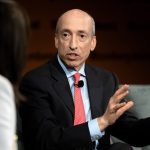Victoria’s hospitalisation rate plummets to its lowest point – 687 – since January 7 this year. “It’s a great trend,” Ms Matson added. With just 7810 new cases detected on Saturday, Ms Matson said health authorities were confident that Victoria had reached its Omicron peak. The state still has 80 people in ICU and 31 on ventilators.Victoria recorded 41 Covid deaths on Saturday, death toll is the highest since September of 2020.Ms Matson said she expects Victoria’s hospitalisation rate will continue to fall, but that case numbers would likely fluctuate. “Victorians have, somewhat, isolated themselves over the last couple of months,” she said. “But (there’s) now more people back to childcare and school. “Melbourne is certainly a more buzzing place than it was a couple of months ago.”Despite that, Ms Matson said she backed the chief health officer’s recommendation to keep people working at home. “That is certainly where we are at today,” she said. “I’m sure Brett (Sutton) will look at everything and look at all the data – how hospitalisations are going, how mobility data is tracking – before he makes any recommendation to the minister.”Asked if it made sense for the government to allow people to continue working from home given most other sectors were open and large crowds had recently descended on the tennis, Ms Matson said: “I take Brett’s recommendations.”She added: “He is the professional in this area, he’s certainly very well experienced to make those recommendations to government. “Given that is his advice, I think it’s the right thing to be doing.”Ms Matson said anyone gathering together led to the possibility of greater risk of transmission. But with masks still mandatory in office settings, she acknowledged that many workers weren’t keen to don a mask all day. “I don’t see masks going anywhere anytime soon. It’s one of the most effective and easiest mitigations we have,” she added. “I understand why people may not want to gather in an office and wear a mask for eight or ten hours but it’s certainly one of the safest things we can do.” It comes as 41 more Covid-related deaths were reported to the Department of Health. Not all of those people had died within the past 24 hours. “This has been a feature, if I can use that word, of our death notifications for the last two years,” Ms Matson said. “The trend hasn’t changed, if I can call it that, unfortunately there can be notification delays … but nothing has changed.”Almost 44 per cent of Victorians aged over 18 have now received their third dose. Department of Health deputy secretary Kate Matson said 43.8 per cent of eligible Victorians had taken up the booster program – up from 37 per cent one week ago. “Every dose matters,” Ms Matson said. The average wait time at PCR testing sites has dropped to five minutes. Approximately 97.4 per cent of tests are also now being returned by the next day. Ms Matson urged people to visit their PCR test if they were unable to secure a rapid test, or if they sought “peace of mind”. PTSD warning from nursesClimbing cases come as the lead nurse of one of Australia’s busiest Covid wards is warning that a torrent of PTSD cases from the medical sector is coming, as overworked and emotionally drained staff struggle to hold on. Grace Carroll, nurse unit manager of Royal Melbourne Hospital’s infectious disease ward is recovering from her second Covid infection. The 41-year-old first caught the virus in July 2020, before vaccinations started and when surgical masks were deemed sufficient PPE. “It was an absolute shock at the time,” — Ms Carroll said. “Working in an infectious diseases ward, no-one had ever caught anything from a patient before. “In the subsequent days more of my colleagues tested positive. We immediately went to N95 masks after that.” Her most recently infection last month was most likely caught while catching up with family over Christmas, with her triple vaccinated status helping keep her symptom-free. Ms Carroll said while her unit was holding their collective breath with the return of school on case numbers, they were encouraged by the impact booster shots were already having. “The wellness department at work ask me every couple of weeks; what do you need? What we really need is more staff. That takes time,” she said. “The emotional toll is something we haven’t really had a chance to address yet. “I think there is going to be a lot of PTSD. “It’s the sadness of the situation, where someone has lived a full life with a full family but their last moments are surrounded by strangers, holding an iPad. “Our hearts have broken quite few times with elderly patients coming in. It becomes quite apparent their child is anti-vax, so they haven’t been vaccinated, and they subsequently die. It didn’t need to happen that way.“It’s real. It’s happening. We’re exhausted. We don’t want to do it anymore.” NED-5151-Covid-19-booster-shots-graphic
Powered by WPeMatico






